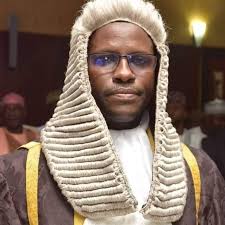The Chairman of the Independent Corrupt Practices and Other Related Offences Commission, Dr. Musa Adamu Aliyu, has sought the support of the media in the fight against corruption at a workshop.
Aliyu sought the help of the media at a workshop put together by the ICPC and Nigeria Union of Journalists in Abuja on Monday.
He called on the media to intensify its efforts in supporting the fight against corruption in Nigeria.
Speaking at the workshop organised to train journalists from across the country, the ICPC Chairman highlighted the essential role that the media plays in promoting transparency and holding individuals and institutions accountable.

During the workshop, which focused on building the capacity of journalists to report on corruption and governance issues, Dr. Aliyu stressed that the media is a crucial partner in exposing corrupt practices and creating public awareness about the detrimental effects of corruption.
- Alaafin coronation: Tinubu restates commitment to preservation of Nigeria’s diverse cultures
- Anambra 2025: Soludo wins APGA governorship ticket
- Family releases Edwin Clark’s burial programme
- PDP postpones Anambra governorship primary
- Police raid criminal hideout in Anambra, recover relief materials
He said: “The media is a key ally in our fight against corruption.
“Without the work of investigative journalists and robust reporting, much of the corruption we see today would remain hidden from the public eye.”
He urged journalists to continue digging deep into corruption cases, but also to ensure accuracy, fairness, and professionalism in their reporting.
“The ICPC is committed to supporting the media in this fight, and we encourage collaboration that will allow for the accurate dissemination of information that helps the public understand the scale and impact of corruption in Nigeria,” he added.
In his closing remarks, Dr. Aliyu called for continuous dialogue and partnership between anti-corruption agencies like the ICPC and the media, stressing that a well-informed and proactive press is essential for winning the battle against corruption in Nigeria.
Dr. Kole Shettima, the Country Director of the MacArthur Foundation, one of the backers of the workshop, called on the media to not only expose corruption, but also highlight positive stories and individuals driving change in Nigeria’s fight against corruption.
Shettima stressed the dual responsibility of the media: holding corrupt individuals accountable and promoting stories of integrity and transformation.
He emphasised that while investigative journalism remains a powerful tool in uncovering corrupt practices, the media must also celebrate those working tirelessly to foster transparency and accountability.
He said: “The media plays an instrumental role in shaping perceptions and narratives. It is crucial to expose corruption, but it is equally important to promote individuals and institutions that are making positive contributions to the country’s development.”
Dr. Shettima noted that media organisations should balance this by also shining a light on success stories, those who are working within the system to make a difference.
“When the public sees positive examples, it not only strengthens trust in institutions but also encourages more people to engage in ethical practices,” he added.
He called for more collaborative efforts between media practitioners, civil society, and anti-corruption agencies.
He urged journalists to maintain ethical standards while also highlighting the achievements of reformers in government, the private sector, and civil society.
He concluded by encouraging the media to leverage its power to build a more hopeful narrative for Nigeria, where transparency, integrity, and good governance are celebrated and rewarded.
On his part, the President of the Nigeria Union of Journalists, Chris Isiguzo, called for the safety and security of journalists to be prioritised as they continue their crucial work in exposing corruption across the country.
Isiguzo emphasised that without adequate protection, journalists remain vulnerable to threats, harassment, and violence, which undermines their ability to carry out their duties effectively.
“Journalists play an essential role in the fight against corruption, and it is imperative that their safety and security be treated as a top priority,” Isiguzo remarked, adding: “If we are to continue this essential work of exposing corruption and holding public officials accountable, journalists must be able to operate in a safe environment, free from intimidation and harm.”
He highlighted the numerous cases of attacks on journalists in Nigeria, especially those involved in investigative reporting on corruption, emphasising the urgent need for government and security agencies to take stronger measures to protect the press.
He called on both state and non-state actors to respect press freedom, stressing that a free and protected press is crucial for democracy and good governance.
Isiguzo urged media organisations to provide necessary training for their staff to handle the risks associated with investigative journalism.
He also advocated for better laws and policies that protect journalists from legal harassment and ensure their safety while carrying out their duties.
He reaffirmed the NUJ’s commitment to supporting journalists in their work and collaborating with international organisations and stakeholders to ensure that journalists in Nigeria can operate without fear, while continuing to serve as a vital force in the fight against corruption.
The workshop, which brought together journalists from various media outlets, provided training on how to report corruption effectively and how to protect themselves against potential risks associated with covering sensitive stories.


